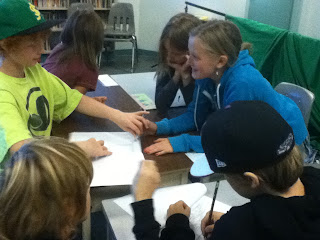 |
| Lily and Brooklynn Grade 6 |
In 2011 a powerful earthquake took place off the Pacific coast of Tohoku Japan. This eathquake triggered a powerful Tsunami with ripples still felt today.
During several humanities classes staggered over several weeks our class has been looking at the effect of this powerful Tsunami and its connections to BC coast. Through reading, sifting through CBC online and various BC's newspaper coverage of the aftermath of the tsunami, our classes is discovering how events that happen thousands of kilometres away impact us daily. In this posts are some of their art, reflections and creative writing based on this tragic event.













